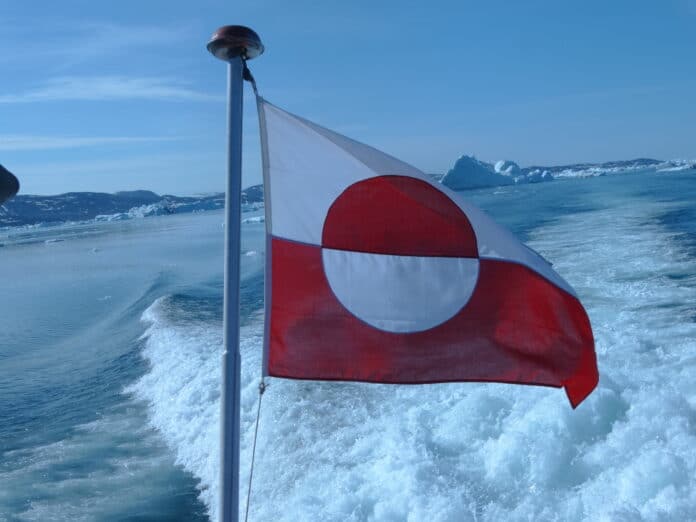On 21 February, the United Nations mark the International Mother Language Day to celebrate linguistic diversity. In the world one language disappears every two weeks. In Greenland, the question of language has become central to the decolonization process and to reclaiming political power and independence from Denmark.
 Languages, with their complex implications for identity, communication, social integration, education and development. They are also of enormous political importance. When a language is suppressed or poorly translated into the dominant political language and discourses, important worldviews and inputs too are lost.
Languages, with their complex implications for identity, communication, social integration, education and development. They are also of enormous political importance. When a language is suppressed or poorly translated into the dominant political language and discourses, important worldviews and inputs too are lost.
Greenlandic and the Danish colonization
Greenlandic (Kalaallisut), which is part of the Inuit languages spoken in Alaska, Canada and Greenland, is divided into three dialects. West Greenlandic (Kalaallisut), is the main variety but in addition, there are East Greenlandic (Tunumiit oraasiat) and the Thule Greenlandic (Inuktun).
When Danish/Norwegian missionaries came to Greenland in the 18th century, they used Greenlandic to christen the population. They relied heavily on native translators who thus exerted major influence on how Christian culture was translated into Greenlandic. Particularly, two women, Arnarsaq and Maalia, were influential. They helped writing the first Greenlandic/Danish dictionaries.
 At the beginning of the 20th century, especially, Greenlandic flourished and was actively developed in literature, poetry and in the educational system. But, with the 1953 amendment of the Danish constitution where the colonization officially ended and Greenland was turned into a Danish county, the Greenlanders were forced to more or less abandon their mother language in favour of learning Danish.
At the beginning of the 20th century, especially, Greenlandic flourished and was actively developed in literature, poetry and in the educational system. But, with the 1953 amendment of the Danish constitution where the colonization officially ended and Greenland was turned into a Danish county, the Greenlanders were forced to more or less abandon their mother language in favour of learning Danish.
Danish was prioritized in primary schools and the language quickly came to dominate childcare, hospitals, public administration and industry. As a consequence, many children from the 1950s and 1960s did not learn Greenlandic. In the 70s, students, fearing that their mother language would disappear, started protesting and with the 1979 Self-Government Act, Greenlandic was re-introduced as the primary language in the educational system.
Democratic discrepencies
 Even though Greenlandic today is the official language, major tensions between the mother language and Danish remain. The political and administrative elites predominately speak Danish while a majority of the population – 70 percent – speaks only Greenlandic. This translates into the democratic question of whether a country can be governed in a language that is only spoken by a minority.
Even though Greenlandic today is the official language, major tensions between the mother language and Danish remain. The political and administrative elites predominately speak Danish while a majority of the population – 70 percent – speaks only Greenlandic. This translates into the democratic question of whether a country can be governed in a language that is only spoken by a minority.
According to Katti Frederiksen and Carl Christian Olsen, who have authored a report on the current status of Greenlandic, the priority given to Danish in political and administrative affairs entails that some voices are considered more important than others. The Greenlandic voices are, in other words, easily overheard or disregarded.
The authors further highlights that the linguistic discrepancies bring about conflicts and discrimination in education, workplaces as well as in public administration and political life.
Language as culture and as politics
 The UNESCO Director-General, Audrey Azoulay, has said that: “A language is far more than a means of communication; it is the very condition of our humanity. Our values, our beliefs and our identity are embedded within it. It is through language that we transmit our experiences, our traditions and our knowledge. The diversity of languages reflects the incontestable wealth of our imaginations and ways of life.”
The UNESCO Director-General, Audrey Azoulay, has said that: “A language is far more than a means of communication; it is the very condition of our humanity. Our values, our beliefs and our identity are embedded within it. It is through language that we transmit our experiences, our traditions and our knowledge. The diversity of languages reflects the incontestable wealth of our imaginations and ways of life.”
The history and politics of language in Greenland make evident that language is also a source of power and that important worldviews and experiences are lost in political discourses if linguistic diversity is suppressed.
As part of the decolonization process and to meet the democratic issues arising from the linguistic discrepancies between the political and administrative elites and the majority of the population, current Prime Minister, Kim Kielsen, has suggested to make Greenlandic mandatory among public employees.
The Prime Minister’s suggestion has been met with both controversy and support. Critics worry that Kielsen’s suggestion is too nationalistic and that would scare away the much-needed foreign professionals as well Greenlanders who have studied abroad.




